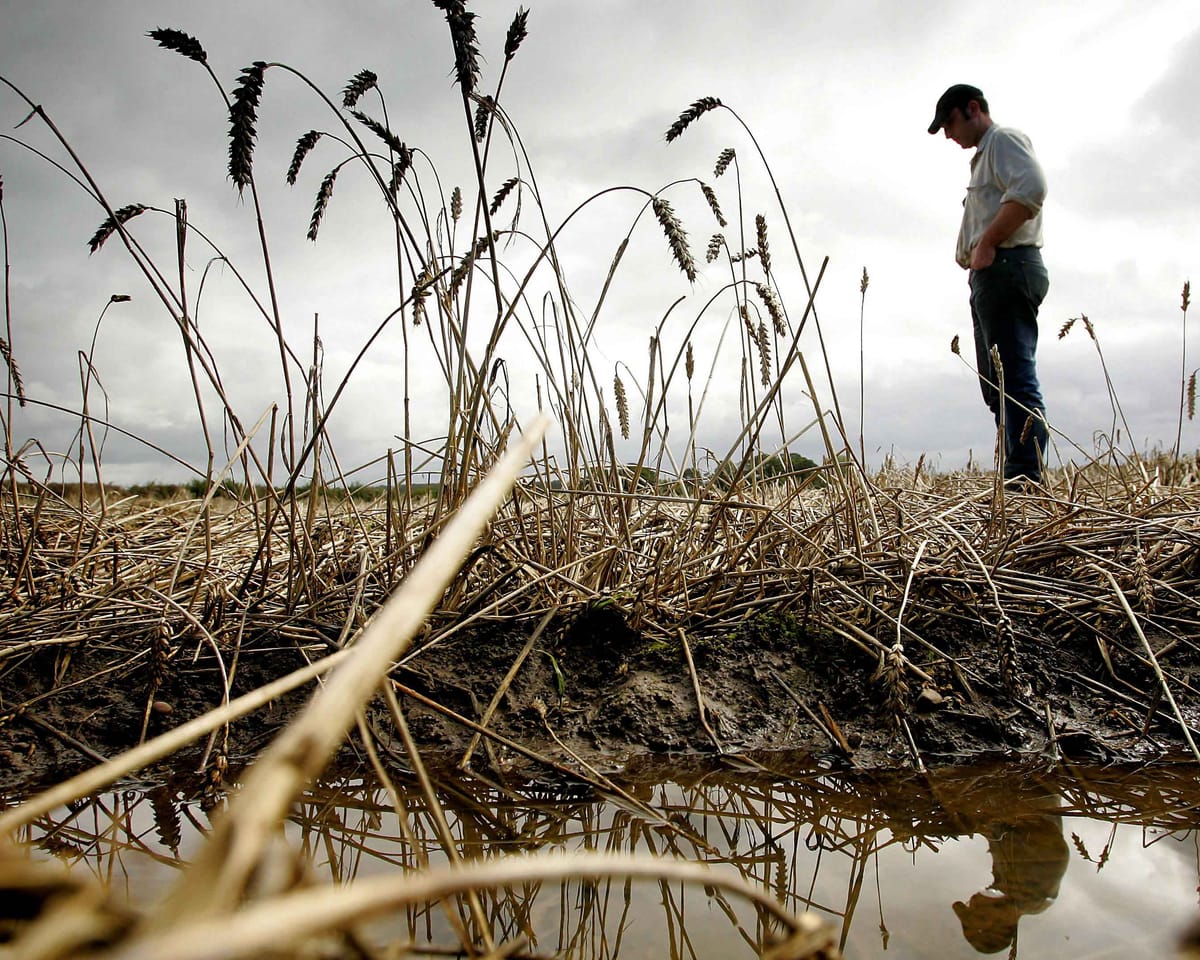Extreme Weather Causes Significant Wheat Shortage in the UK, Study Shows
Since 2020, extreme weather conditions have led to a significant loss in wheat harvests across the UK, according to a recent analysis. Droughts and floods, intensified by climate change, have resulted in a decline of over 7 million tonnes of wheat production—equivalent to more than 4 billion loaves of bread, or roughly a year’s supply.
Forecasts suggest 2025 will be another difficult year for harvests due to persistent drought. Farmers faced record-breaking heat, dry conditions, and restrictions on water use, leaving many struggling to cultivate crops.
Two of the three poorest harvests recorded in the UK have occurred in the past decade, with 2020 being the worst and 2024 the third worst. Experts warn that such conditions will likely worsen as climate change leads to prolonged dry spells interspersed with intense rainfall, increasing flood risks.
The unpredictability of weather patterns is creating instability for the agricultural sector. While wine producers anticipate an exceptional year in 2025 due to high numbers of sunny days, apple growers have reported unusually high yields.
Tom Lancaster, a land and food analyst, stated: “Farmers are already dealing with some of the most challenging harvests on record, with extreme conditions disrupting planting and crop management. This year, crops suffered through one of the hottest and driest growing seasons ever documented.”
He added: “Climate change is transforming agriculture. Declining domestic wheat production means more reliance on imports, costing farmers significant income and reducing the UK’s self-sufficiency in a vital crop. While adaptation measures are essential, cutting emissions to net zero remains the only way to curb increasing weather-related losses.”
The wheat shortage has also affected global supply chains, as other countries face production declines due to conflicts and adverse weather. UK millers have imported record amounts of wheat to meet demand for flour used in bread and baked goods. Last autumn, wheat imports were double the five-year average, and the UK’s self-sufficiency fell from 96% in 2023 to 79% in 2024.
Colin Chappell, a farmer from Lincolnshire, said: “Farming has never been harder. While I’m accustomed to weathering challenges, recent years have been relentless—months of rain followed by extended droughts, leaving me with two consecutive poor harvests.”
He expressed concern over the lack of available support: “Adapting to these extremes is critical, but with current assistance programs closed, accessing the help needed is difficult. Reopening these must be a priority to ensure farmers can continue producing wheat sustainably.”
Read next

"Indonesia school collapse: rescue efforts conclude with 67 fatalities"
Search Ends After Indonesian School Collapse Leaves Dozens Dead
Indonesian rescuers concluded their search on Tuesday for victims trapped beneath the rubble of a collapsed Islamic boarding school in East Java, after recovering more than 60 bodies, authorities confirmed.
The tragedy in the town of Sidoarjo struck last week when

"French PM makes last-ditch effort to save government as crisis deepens – Europe updates"
France's Political Standoff Continues as Prime Minister Seeks Cross-Party Support
France remains at a political stalemate as the outgoing prime minister, Sébastien Lecornu, makes a final attempt to gather support from rival parties for a new government.
President Emmanuel Macron assigned Lecornu, 39, to form a government in

"Macron calls emergency talks with parties to swiftly pick new PM"
Emmanuel Macron has called upon the leaders of several political factions to his office, urging them to demonstrate "collective responsibility" as he seeks to appoint a new prime minister amid growing political turmoil.
All parties except Marine Le Pen’s far-right National Rally, the largest opposition group, and

